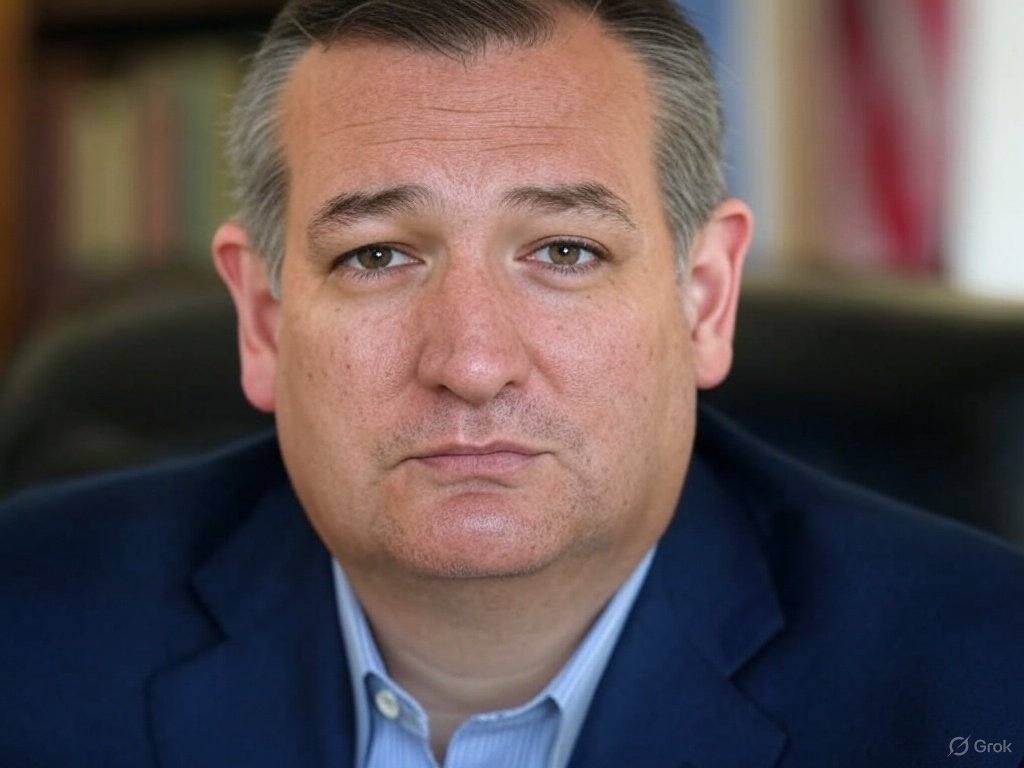Federal Election Commission Clears Ted Cruz Amid Controversy Over Podcast Funding
U.S. Senator Ted Cruz recently found himself at the center of a significant campaign finance controversy involving his podcast, “Verdict with Ted Cruz.” The Federal Election Commission (FEC) has officially ruled that Cruz did not violate any campaign finance laws in connection with substantial contributions made by iHeartMedia, the company that syndicates his podcast, to a super PAC supporting his reelection efforts. This ruling comes after a complaint filed by campaign finance watchdog groups raised questions about the legality of these contributions, totaling nearly $1 million.
The Context: Podcasting Meets Political Campaigning
The intersection of media and politics has always been a complex terrain, but the rise of podcasts has introduced new dynamics into campaign strategies. In 2022, iHeartMedia began syndicating Cruz’s podcast, which has quickly become a platform for not only discussing political issues but also for rallying support for his campaigns. The podcast serves as a crucial vehicle for Cruz to connect with voters, disseminate his political messages, and engage with a broader audience beyond traditional campaign rallies.
The FEC’s ruling came as a relief to Cruz, especially considering the scrutiny that political financing often attracts. In a 5-1 decision, the FEC dismissed the complaint from groups like End Citizens United and the Campaign Legal Center, which alleged that Cruz might have played a role in iHeartMedia’s contributions to the pro-Cruz Truth and Courage PAC. According to federal law, candidates can only directly solicit or direct up to $5,000 in donations to super PACs, which are otherwise allowed to raise unlimited sums to support candidates.
Details of the Contributions
iHeartMedia contributed a total of $961,435 to the Truth and Courage PAC through a series of seven donations made between March 2023 and August 2024. These contributions raised eyebrows among campaign finance watchdogs, who argued that Cruz’s involvement with the podcast could imply that he directed or solicited the funds, which would be a violation of campaign finance laws.
However, the FEC found no evidence to support these claims. The commission stated, “there is no available information to indicate that Cruz solicited, directed, received, transferred, or spent the funds iHeart paid to the PAC.” The ruling clarified that the relationship between iHeartMedia and the PAC was primarily a business arrangement concerning the podcast, with Cruz’s role limited to hosting.
The Allegations: A Closer Look
The complaint filed by the watchdog groups suggested that the “most reasonable and logical inference to be drawn from these circumstances” was that Cruz “requested or directed” iHeartMedia to contribute to the PAC. This assertion highlighted a concern that Cruz might have circumvented campaign finance laws by leveraging his podcast’s popularity and reach to influence financial contributions to his campaign.
Despite these allegations, the FEC confirmed that there was no substantial evidence indicating Cruz or his campaign consultant, Jeff Roe, had any involvement in the allocation of podcast profits or the decision-making process regarding the contributions to the PAC. The FEC noted, “Cruz and the PAC, in a joint response denying the complaint’s allegations, acknowledged that Cruz attended a meeting with iHeart representatives to discuss its acquisition of ‘Verdict,’ while Cruz’s campaign consultant attended additional discussions.” However, the ruling concluded that “the available information does not indicate that Cruz or Roe suggested how the Podcast’s profits were to be allocated.”
The Political Landscape: Cruz’s Re-election Bid
Cruz’s reelection campaign in November saw him defeating Dallas’ then-U.S. Rep. Colin Allred by over 8 percentage points. His ability to leverage his podcast as a campaign tool played a vital role in expanding his reach to potential voters. By promoting his podcast during campaign rallies and utilizing it as a platform to communicate his viewpoints, Cruz effectively bridged the gap between traditional campaigning and modern media engagement.
As political campaigns continue to evolve, the strategic use of media platforms such as podcasts is likely to become more prevalent. Cruz’s case serves as a significant example of how candidates can harness these tools for electoral success while navigating the intricate landscape of campaign finance laws.
The Implications of the FEC Ruling
The FEC’s decision not only clears Cruz of any wrongdoing but also sets a precedent for how future cases involving media contributions to political campaigns may be handled. The ruling suggests that as long as there is no direct solicitation or direction from candidates regarding contributions to super PACs, media companies can engage in financial relationships with political campaigns without violating campaign finance laws.
Moreover, this case sheds light on the broader implications of campaign financing in the age of digital media. With the rise of social media influencers and new forms of digital content, candidates may increasingly find ways to leverage media partnerships to support their campaigns. This evolution presents challenges for regulatory bodies tasked with ensuring transparency and accountability in campaign financing.
Conclusion
U.S. Senator Ted Cruz’s recent FEC ruling highlights the complex interplay between media, politics, and campaign finance in today’s digital landscape. As candidates increasingly utilize platforms like podcasts to reach voters, understanding the legal boundaries of campaign financing will be crucial. The FEC’s decision establishes a significant precedent for future political campaigns, suggesting that while media companies can support candidates through financial contributions, candidates must remain vigilant in adhering to campaign finance laws. As we move forward, the relationship between media and politics will undoubtedly continue to evolve, presenting both opportunities and challenges for future candidates.






